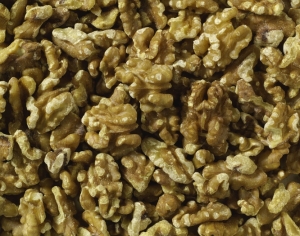Are you transitioning to a vegan lifestyle and searching for the top protein sources for a healthy plant-based diet?
Glenda’s Farmhouse is a quality source of a wealth of nuts and seeds, all full of protein and other nutritious content. Glenda’s Farmhouse walnut crumbles are particularly useful as a “meatless” protein source.

Let’s explore need-to-know information regarding protein and vegan diets.
Why Protein Matters
Protein consumption is critical to keeping muscle tone and maintaining a healthy weight, but the most significant health benefits come from foods in their closest natural state. While incredibly beneficial, a vegan diet must be well-planned to prevent nutritional deficits in essential vitamins and minerals.
The Difference Between Plant Protein and Animal Protein
Protein consists of amino acid chains. Within nature, twenty different amino acids create protein, nine of which are essential to the body even though it cannot produce them. The body can’t produce these nine “essential” amino acids, so they must be part of your diet. The body can produce the remaining 11 amino acids.
Animal proteins offer all of the essential amino acids at the levels the human body requires, so they’re “complete” proteins. While plants also provide all nine essential amino acids, they usually provide an insufficient amount of at least one. These plant foods are referred to as “incomplete” proteins. If you eat various plant foods, your diet should still include all nine essential amino acids. The key is variety when it comes to a vegan or vegetarian diet.
Protein-Packed Plant-Based Foods
Seitan – Made of gluten, seitan closely imitates meat in appearance and texture. Within each 3 ½ oz serving, seitan contains approximately 25 grams of protein. Unfortunately, it also offers selenium in impressive quantities. Preparation methods include pan frying, sauteing, and grilling.
Walnuts (and other nuts and seeds) – A single serving provides 4 g of protein and an elevated level of mono- and poly-unsaturated fats, antioxidants, fiber, and other important vitamins and minerals. Walnuts can be crumbled and seasoned to create an impressive mock ground “meat” for everything from tacos to meatloaf.
Soybeans – Providing all nine essential amino acids, soybean-based products are ideal for vegans. Tofu, tempeh, and edamame are all examples of soybean-based foods. They all contain 12-20 grams of protein in each 3 ½ oz serving.
Edamame – These are young soybeans that have a sweet taste. They’re steamed or boiled and used in various dishes, from soups to salads, sushi, stir-fries, rice rolls, and wraps. You can also enjoy them roasted and seasoned for a healthy, crunchy snack.
Tofu – soybean curds pressed together that readily take on the flavor of the rest of the ingredients.
Tempeh – Cooking, slightly fermenting, and pressing mature soybeans results in a nutty-flavored, protein-rich meat substitute.
Tofu and tempeh are used in a wide range of dishes – stews, curries, chilis, and burgers, being a few.
The top vegan protein sources range from beans to lentils, nuts, seeds, and more. Maintain variety in your diet to ensure you consume enough protein, and shop with Glenda’s Farmhouse for an affordable and convenient source of healthy foods.



